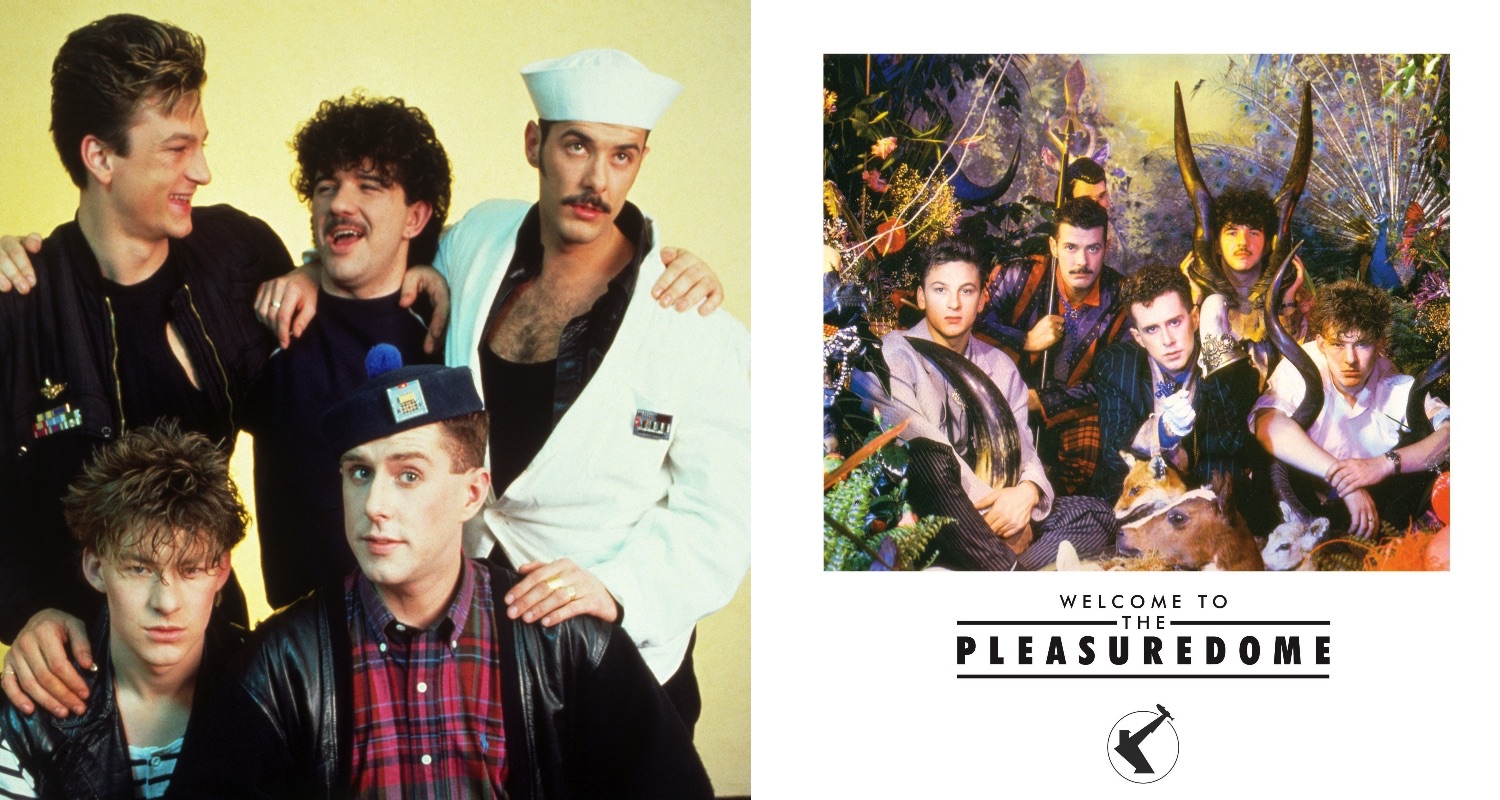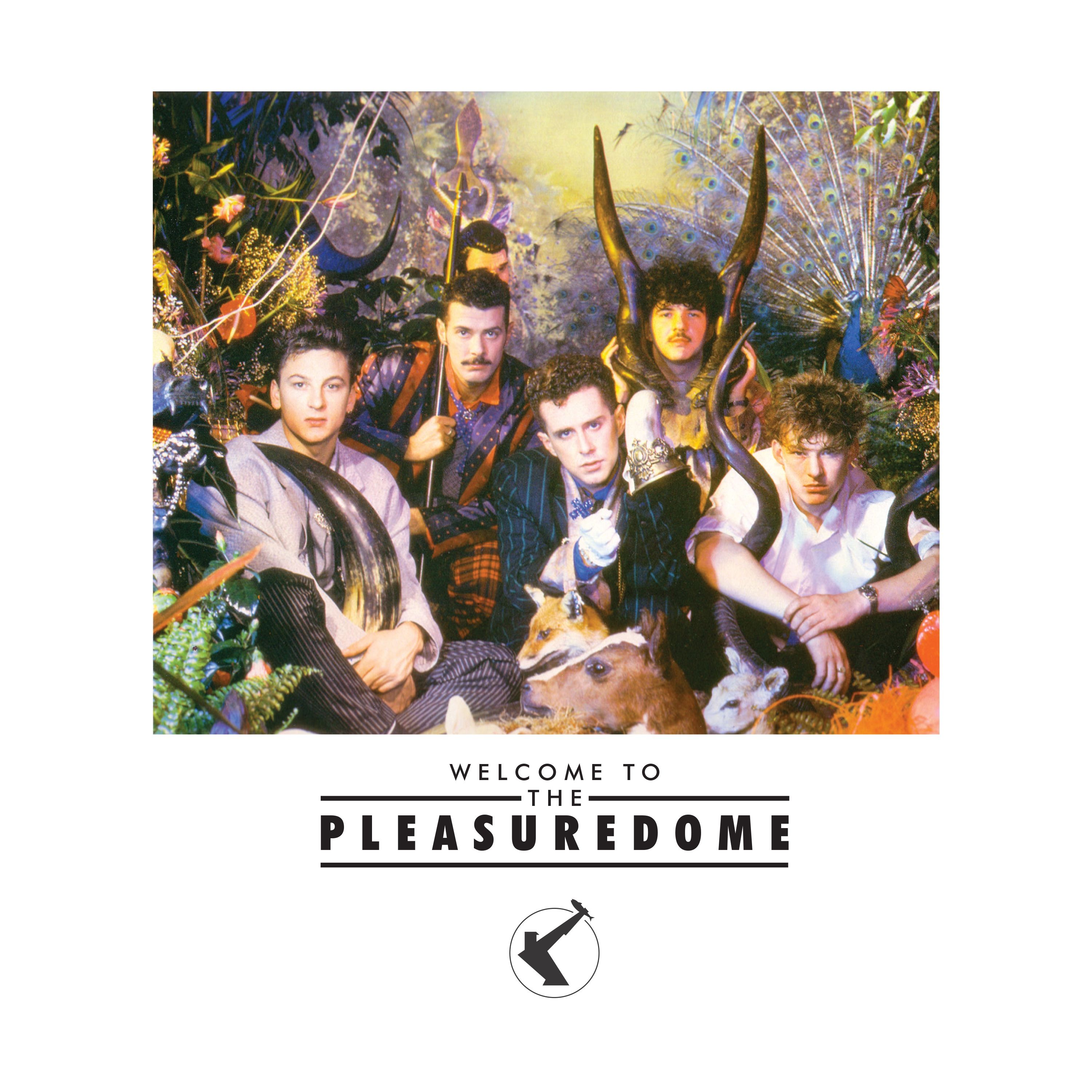Frankie Goes to Hollywood reaches peak pleasure in Welcome to the Pleasuredome
Columnist Joseph Ryan-Hicks takes a look at Frankie Goes to Hollywood’s ambitious debut album that sought to challenge the status quo of pop, and politics.
By Laura McGale

Words: Joseph Ryan-Hicks; pictures: BMG/Universal Music Group
“Relax, don’t do it / When you want to sock it to it…”
Chances are you’ve heard at least one of Frankie Goes to Hollywood’s three number one singles — ‘Relax’, ‘Two Tribes’, and ‘The Power of Love’. The latter tied the group with fellow Liverpudlians Gerry and the Pacemakers as the second act in UK chart history to reach the top spot with their first three singles.
They were later dethroned by the Spice Girls.

The album that followed, Welcome to the Pleasuredome, also hit number one in late 1984. The ambitious debut dealt with love, sex, and war and is by no means a breezy listen; 16 songs in length, it drew criticism upon release for its lack of original material — Bruce Springsteen and The Temptations were among the artists covered. But where it truly shone was in its singles.
Starting with ‘Relax’, a thumping ode to… well, edging, the controversial track was banned from TV and radio shortly after release. Former Radio 1 DJ and now-UKIP member Mike Read famously refused to play it over distaste for the lyrics. (Eye roll.)
Despite the boycott, it sold over two million copies, becoming the UK’s third biggest selling single of that year. The Beeb had no choice but to lift their ban and the group performed it on Top of the Pops’ Christmas special.
In the album’s liner notes, bassist Mark O’Toole cleared up confusion over the true lyrical meaning, declaring: “When it first came out, we used to pretend it was about motivation. Really it was about shagging.”
Merry Christmas, indeed.
The song and its video were trailblazing in their gay sex positivity, as is much of the band’s output. (A 1994 compilation album was named Reload! Frankie: The Whole 12 Inches, while a 2000 video collection was entitled Hard On.)
Following the success of ‘Relax’, the band released the anti-war track ‘Two Tribes’. Many interpreted it as a song about the Cold War and the threat of nuclear weapons, although this was never confirmed.
It was a colossal success, topping the charts for nine consecutive weeks, becoming the UK’s longest-running number-one single of the 80s. Ironically, it’s the least remembered of the group’s hit singles.
Concluding the five-piece’s string of number ones, ‘The Power of Love’ hit the top spot in early December 1984. The soul-stirring ballad explores the spiritual, often biblical, experience of love.
“I always felt like ‘The Power of Love’ was the record that would save me in this life,” said Holly Johnson of the track. “Love is the only thing that matters in the end.”
From John Lewis ads to X Factor winner’s singles, the song is something of an alternative Christmas anthem — despite not actually referencing the holiday. Nearly 40 years later, it still resonates with audiences, re-entering the charts on an almost yearly basis.
Too often overlooked in queer music history, Frankie Goes to Hollywood’s debut is an ambitious work that sought to challenge the status quo of pop, and politics.
It sold a staggering quarter of a million copies within its first week and was a big hit internationally, reaching number one in New Zealand, top five in Germany, top 10 in Canada and Australia, and a respectable 33 in the US.
What followed for Frankie Goes to Hollywood was rockier. The band’s sophomore effort failed to impress critics and the public alike, and the group disbanded in 1987. As a solo artist, Johnson went on to land two top 10 singles.
Welcome to the Pleasuredome exists as something of an oddity in pop history. Frequently forgotten but criminally overdue recognition, it paved the way for the Pet Shop Boys and, much later, Years & Years.
